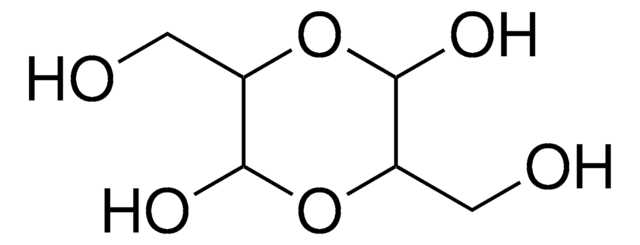69312
L-Glyceraldehyde-3-phosphate solution
≥95% (TLC), 8-12 mg/mL in H2O (qNMR)
Synonym(s):
(2S)-2-Hydroxy-3-phosphonooxypropanal, L-GAP
About This Item
Recommended Products
Assay
≥95% (TLC)
form
liquid
concentration
8-12 mg/mL in H2O (qNMR)
impurities
≤0.5 mg/mL D-glyceraldehyde-3-phosphate (enzymatic)
storage temp.
−20°C
SMILES string
[H]C([C@@H](O)COP(O)(O)=O)=O
InChI
1S/C3H7O6P/c4-1-3(5)2-9-10(6,7)8/h1,3,5H,2H2,(H2,6,7,8)/t3-/m1/s1
InChI key
LXJXRIRHZLFYRP-GSVOUGTGSA-N
Biochem/physiol Actions
Other Notes
Storage Class Code
10 - Combustible liquids
WGK
WGK 3
Flash Point(F)
Not applicable
Flash Point(C)
Not applicable
Certificates of Analysis (COA)
Search for Certificates of Analysis (COA) by entering the products Lot/Batch Number. Lot and Batch Numbers can be found on a product’s label following the words ‘Lot’ or ‘Batch’.
Already Own This Product?
Find documentation for the products that you have recently purchased in the Document Library.
Customers Also Viewed
Our team of scientists has experience in all areas of research including Life Science, Material Science, Chemical Synthesis, Chromatography, Analytical and many others.
Contact Technical Service














